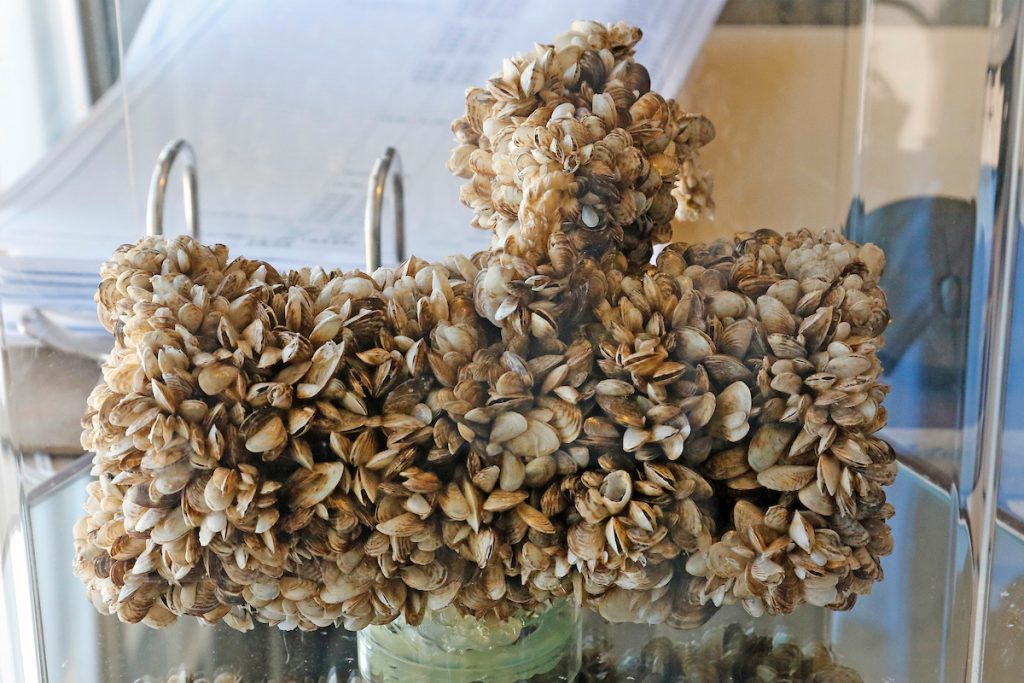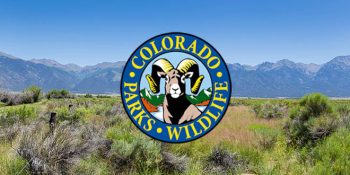DENVER – As the final winter frosts begin to thaw, reservoirs are opening to boating and Colorado Parks and Wildlife (CPW) officials are busy ramping up inspection stations for the upcoming season. Boat inspections for aquatic nuisance species (ANS) are mandatory in Colorado and required for motorized or trailered watercraft entering the state and prior to launching on most public waters within the state.
ANS boat inspections and COVID-19
Because of the COVID-19 outbreak, many local and federal waters are postponing opening to boating and ANS inspections at this time. Waters operated by CPW are continuing to open and provide recreation opportunities as weather permits. Boaters are reminded not to travel long distances to go boating or fishing while the COVID-19 pandemic continues to affect Colorado. Recreate at local reservoirs in compliance with the Stay-At-Home order from Gov. Jared Polis.
• Boaters are reminded to stay at least six feet away from inspection station staff at all times.
- Do not congregate in groups larger than 10 individuals and practice good social distancing in accordance with recommendations from the Centers for Disease and Prevention and the Colorado Department of Public Health and Environment (CDPHE). Local health orders may further limit group size; please be aware of local requirements.
- Boaters should wait until the inspector calls them up to the station.
- Boaters should stay in their vehicles, set the parking brake, turn their vehicles off, and remain in the vehicles unless instructed by an inspector to get out and assist with the inspection.
- If you have a green seal receipt, please keep your window closed and show it to the inspector through the window glass. CPW reminds everyone to get a green seal and receipt after boating to speed up the next inspection. CPW is diligently working to keep state parks’s waters open for boating so the public can enjoy the health benefits associated with being outside. However, visitors must enjoy parks responsibly during the COVID-19 outbreak. It’s important for everyone to follow the recommendations from CDPHE for easy, everyday actions to protect yourself and those around you.
Up-to-date information about how CPW is responding to the COVID-19 pandemic is available on our website.

Reminder: Get your ANS stamp
An ANS stamp is required prior to boating in Colorado. The stamp helps CPW fund ANS inspections, monitoring, education, and other activities across the state.
Colorado boat owners who operate motorboats and sailboats on lakes and reservoirs must purchase a $25 ANS stamp annually. The cost of the stamp for out-of-state motorboats and sailboats is $50. Boaters from out of state can purchase online at www.cpwshop.com.
Colorado is one of just a few states in the country that doesn’t have an infestation of adult mussels in any of its waters,” said Elizabeth Brown, invasive species program manager for CPW. “That’s directly attributable to our mandatory inspection and decontamination program that’s been in place for over a decade now.”
There have been 281 watercraft infested with zebra or quagga mussels intercepted in the state since the program’s inception. Last year, inspectors intercepted 86 infested watercraft, a huge increase from 51 in 2018 and 26 in 2017.
“CPW is very confident in the statewide inspection and decontamination system to protect our waters. However, this program relies on the compliance of the boating community,” said Reid DeWalt, Assistant Director for Aquatic, Terrestrial and Natural Resources for CPW. “Boaters need to know the rules and follow them if we are going to be effective at keeping zebra and quagga mussels out of the nation’s headwaters.”
Aquatic nuisance species, such as zebra and quagga mussels, pose a serious threat to natural resources, recreation and the water infrastructure of the state. Mussel infestations cause a variety of major problems. Because mussels consume plankton, they disrupt the food web and out-compete sport fish and native fish. Mussels clog infrastructure, including reservoir dams, outlet structures and distribution systems that carry water for irrigation, municipal and industrial uses. Mussels also infest boats and damage engines.
Mussels have caused billions of dollars in damage, especially in the upper Midwest. Nearby states where mussel infestations exist include Utah, Arizona, Kansas, Texas, Nebraska and Oklahoma. Invasive mussels could have devastating ecological, economic, and recreational impacts if infestations were to establish here.
“Keeping Colorado’s waters free of invasive species is critical to maintaining efficient water delivery and infrastructure systems, and providing high-quality fishing and boating opportunities for our residents and visitors,” Brown said. “The success of the ANS Program is due to the dedicated inspection and decontamination staff across the state. We are grateful to those individuals that are working on the front lines to provide recreation and protect our waters.”
A complete list of Colorado inspection sites and hours of operation, along with information about the ANS stamp, can be found on CPW’s boating page. Always check with your destination reservoir before going to verify hours of operation.
For more information on preventing harmful aquatic nuisance species in Colorado, visit www.cpw.state.co.us.
SPREAD THE NEWS
COMMENT, Like, Follow & SHARE @I70Scout
CURRENT EDITION
WEATHER & TRAFFIC PUZZLES RECENT NEWS ADVERTISE WITH US
